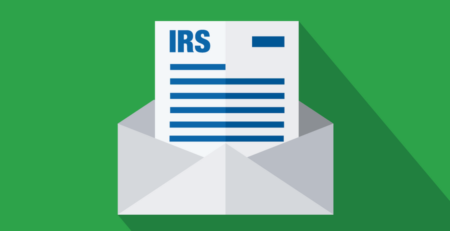Tips for Effective Debt Management
Debt can feel like an overwhelming weight on your shoulders, whether you’re a young professional just starting your career or a small business owner striving to keep operations running smoothly. It’s not just a financial concern—it can have a significant impact on your emotional well-being and long-term goals. However, with the right strategies and mindset, managing debt effectively is not just possible; it can empower you to take control of your finances and build a brighter future.
This comprehensive guide offers practical tips to help you understand your debts, create a realistic plan, and stay focused on achieving financial freedom.
Understanding the Types of Debt
The first step to effective debt management is understanding the types of debt you carry and how they impact your financial health. Debts fall into two categories:
- Good Debt
These are debts tied to investments that can generate value over time. Examples include student loans, mortgages, or business loans. While these debts are still obligations, they often come with lower interest rates and long-term benefits, such as higher earning potential or property appreciation.
- Bad Debt
This type primarily consists of consumer debt, like credit card balances or payday loans, often used to finance non-essential expenses. Overwhelming debt typically carries higher interest rates and can quickly spiral out of control if not managed properly.
By categorizing your debts, you can better identify which ones deserve your immediate attention and determine how to allocate your financial resources.
Creating a Realistic and Detailed Budget
To manage debt effectively, a solid budget is non-negotiable. This budget should account for your income, essential expenses (like rent, utilities, and groceries), debt repayments, and savings contributions. Here’s how to create one:
- Track Your Spending: Review your past 2-3 months of expenses to understand where your money is currently going.
- Set Spending Categories: Divide your budget into categories like living expenses, debt repayments, savings, and discretionary spending.
- Be Realistic: Avoid setting overly ambitious goals that may be impossible to stick to. Instead, work toward incremental progress over time.
- Include Debt Goals: Allocate a specific portion of your monthly income toward paying off debt. Adjust spending in other categories to prioritize repayments.
A detailed budget helps ensure you’re living within your means and actively working toward lowering your debt.
Prioritizing High-Interest Debts
Not all debts are created equal—and some cost you significantly more in the long run. High-interest debts, like credit card debt, can quickly snowball if left unchecked, costing you thousands in interest. Two popular repayment strategies include:
- The Avalanche Method: Focus on paying off your debts with the highest interest rates first while making minimum payments on others. This method minimizes long-term interest costs.
- The Snowball Method: Pay off your smallest debts first to build momentum, then tackle larger debts. This method is psychologically motivating for many people.
Choose the approach that works best for you, considering both financial and emotional factors.
Regularly Reviewing and Adjusting Your Debt Plan
Life is unpredictable—you might face financial setbacks, secure a higher-paying job, or receive a bonus. Regardless of your situation, regularly reviewing and updating your debt strategy is critical.
- Track Your Progress: Check your remaining balances every month to ensure you’re on track with your repayment goals.
- Adjust for Changes: Update your repayment plan if your income or expenses change. If you’re earning more, consider increasing your monthly debt payments.
- Celebrate Milestones: Successfully paying off a debt is an achievement! Acknowledge your wins to stay motivated.
Being proactive and adaptable will ensure that your debt management efforts remain effective through life’s ups and downs.
Negotiating with Creditors
Many people assume that creditors won’t be willing to work with them, but that’s not always true. Creditors would often rather receive partial payments than risk getting nothing at all. Negotiating with lenders can result in:
- Lower Interest Rates: Reducing your rate can significantly decrease your monthly payments.
- Adjusted Payment Terms: Some creditors will extend repayment timelines to make monthly obligations more manageable.
- Debt Settlement Plans: For severe situations, creditors may accept a lump sum payment for less than the full balance.
Be polite but firm, and come prepared with a clear understanding of your financial situation before reaching out. Keep in mind that formal agreements could impact your credit score, so weigh the pros and cons carefully.
Building an Emergency Fund
One major obstacle to staying on top of debt is unforeseen expenses—medical bills, car repairs, or job loss can derail even the most carefully crafted budget. An emergency fund acts as a financial safety net to prevent you from turning to high-interest credit cards or loans to cover unexpected costs.
How to Build Your Emergency Fund:
- Start small, aiming for $500-$1,000 initially, then gradually increase it to cover 3-6 months of essential expenses.
- Automate your savings by transferring a fixed amount into a dedicated account each month.
- Treat your emergency fund as untouchable, tapping into it only for genuine emergencies.
Preparing for the unexpected protects you from taking on unnecessary debt in the future.
Seeking Professional Financial Advice
For more complex debt situations, do not hesitate to consult a financial advisor or credit counselor. These professionals can:
- Evaluate Your Circumstances: Provide a detailed assessment of your current debts, income, and expenses.
- Develop a Personalized Plan: Tailor a repayment strategy based on your unique financial goals and challenges.
- Mediate with Creditors: Act as intermediaries during negotiation processes.
- Offer Counseling: Help identify habits or systemic issues contributing to your debt problems.
Seeking guidance can make a significant difference, especially when emotions or lack of expertise cloud sound financial decision-making.
Overcoming Common Challenges in Debt Management
Managing debt isn’t without its hurdles. Here are a few common challenges—and how to address them:
- Temptation to Overspend: Identify triggers for unnecessary spending and replace them with healthier habits. For example, if online shopping is an issue, unsubscribe from retail newsletters and delete saved payment details.
- Staying Disciplined: Keep your goals visible (e.g., a dream vacation or being debt-free) to remind yourself why sticking to the plan is worth it.
- Balancing Debt and Savings: Allocate a portion of your income toward savings, even while repaying debt. This guards against emergencies and keeps you on track for long-term financial goals like buying a house or retiring comfortably.
- Addressing Emotional Stress: Don’t ignore the mental toll of debt. Talk to a trusted friend, family member, or counselor to stay emotionally grounded.
- Understanding Complexity: Educate yourself about different types of debt. Learning what makes certain loans good (or bad) ensures you make better financial decisions moving forward.
The Long-Term Benefits of Financial Freedom
Eliminating debt isn’t an overnight process, but the benefits of achieving a debt-free lifestyle are immeasurable:
- Peace of Mind: Reduced financial stress allows you to focus on personal and professional growth.
- Additional Savings Opportunities: You will have more income to dedicate to saving, investing, or enjoying life.
- Achieving Financial Goals: Whether you’re starting a business, traveling the world, or buying a home, you’ll have the financial flexibility to pursue your dreams.
- Building Wealth: With debt out of the way, you can concentrate on growing your net worth.
Debt management isn’t just about numbers—it’s about reclaiming control, reducing stress, and creating a better life.
Take the First Step Today
Managing debt effectively takes time, discipline, and willingness to adapt. Start by understanding your unique situation—every financial decision you make from here will shape your path toward freedom.
If you’re feeling overwhelmed, don’t hesitate to seek professional guidance or use the tips outlined above to regain control of your finances. Remember, no matter how much debt you owe, taking consistent steps—even small ones—will lead you to a more secure future. The freedom and possibilities that come with being debt-free make every effort worthwhile!













Leave a Reply
You must be logged in to post a comment.